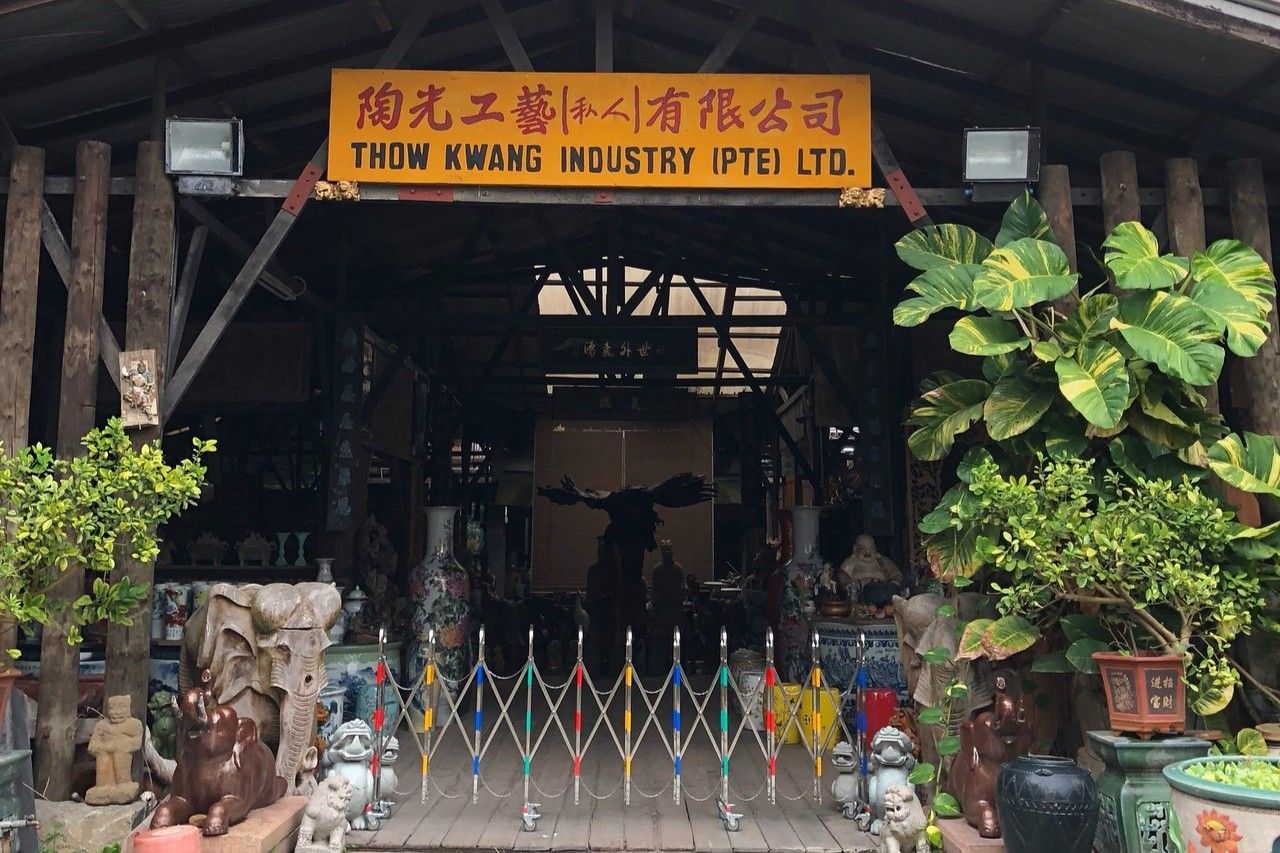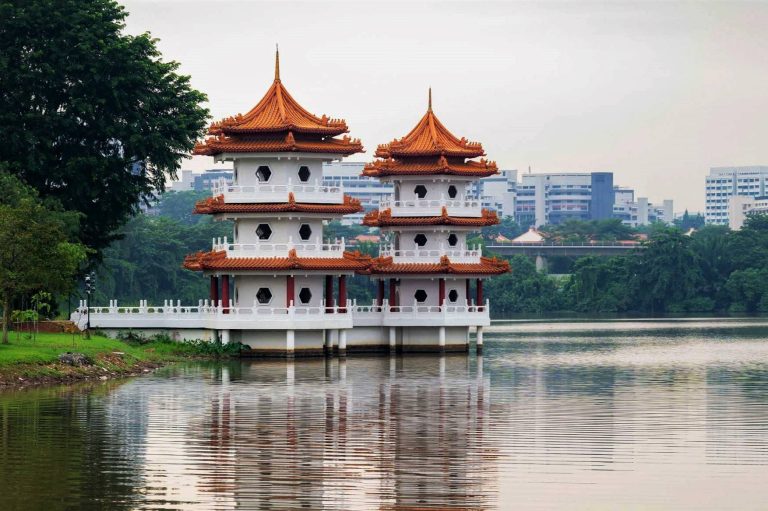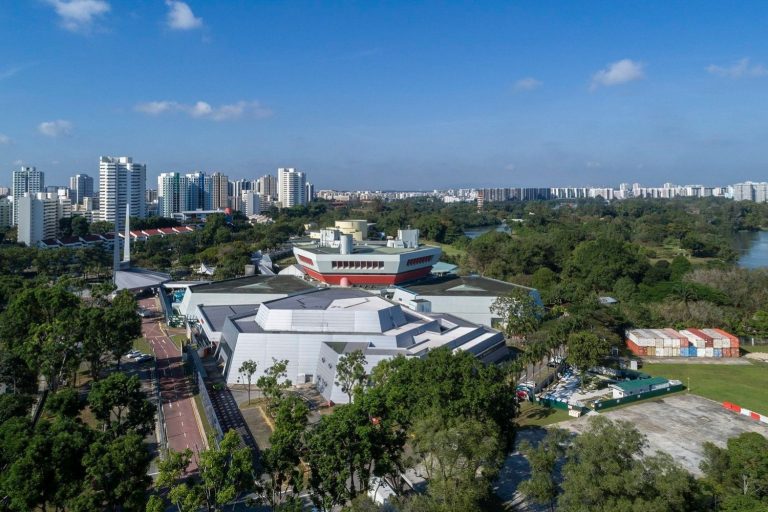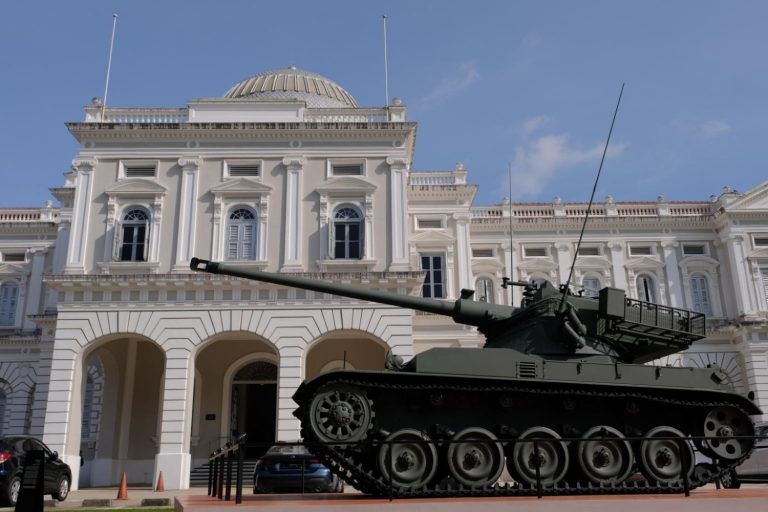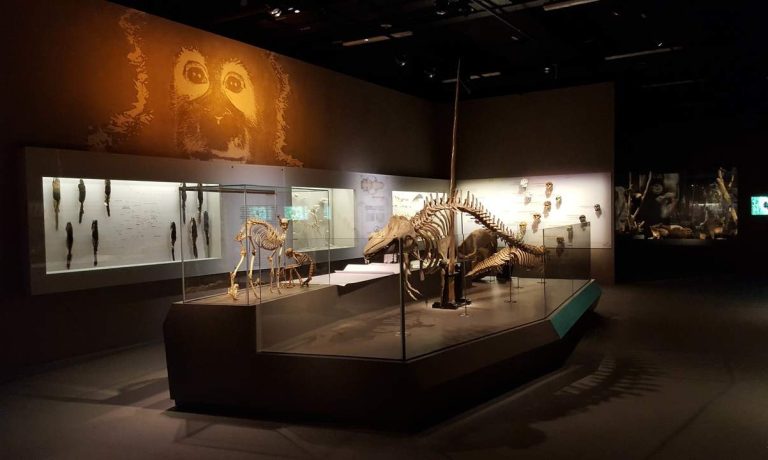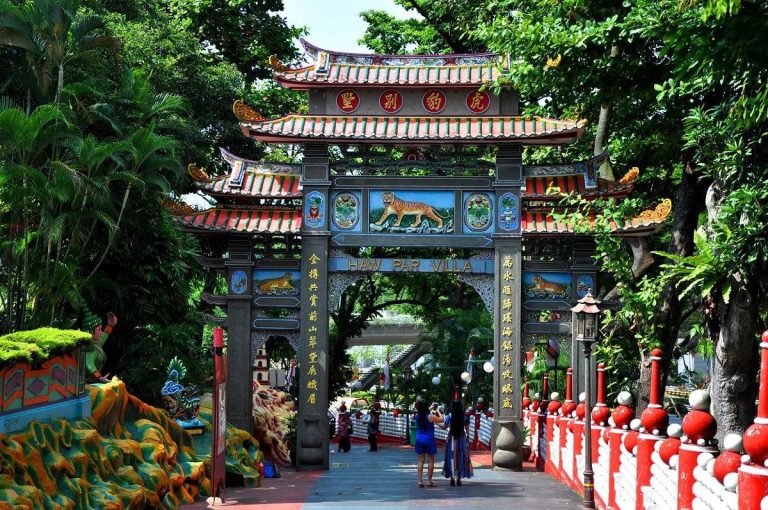Thow Kwang Pottery Jungle: Traditional Dragon Kiln
A Living Heritage in Singapore’s West
Tucked away in Lorong Tawas, near the lush Jurong Eco Garden, lies a remarkable piece of Singapore’s cultural heritage that has been quietly preserving ancient pottery traditions for nearly six decades. Thow Kwang Pottery Jungle stands as the nation’s last surviving dragon kiln, a testament to the enduring craftsmanship of traditional Chinese pottery making. This family-run establishment has been operating since 1965, maintaining practices that stretch back centuries while adapting to modern times. The site offers visitors a rare glimpse into authentic artisanal processes that are rapidly disappearing from our increasingly digital world. What makes this place truly special is not just its historical significance, but its active role in keeping traditional pottery techniques alive for future generations. The kiln continues to produce unique ceramics using methods that cannot be replicated by modern electric or gas kilns, creating pieces with distinctive ash glazes that tell the story of fire, wood, and clay working in harmony.
Location and Accessibility
Thow Kwang Pottery Jungle occupies a unique position in Singapore’s western region, specifically along Lorong Tawas. The location provides easy access for visitors arriving by various means of transport. Those driving can take advantage of the free parking facilities available on-site, making it convenient for families and groups carrying pottery purchases. Public transport users can reach the destination via bus services from Boon Lay Interchange, connecting the heritage site to Singapore’s comprehensive transport network. The strategic location near Jurong Eco Garden also allows visitors to combine their pottery experience with nature walks and other recreational activities in the area.
Historical Significance
The dragon kiln at Thow Kwang was constructed in the 1940s, representing a crucial piece of Singapore’s industrial and cultural history. This traditional Chinese wood-fired kiln has witnessed the transformation of Singapore from a colonial trading port to a modern city-state. The establishment of the pottery business in 1965 marked the beginning of a multi-generational commitment to preserving traditional ceramic arts. Throughout the decades, the kiln has survived urban development pressures and changing economic landscapes, standing as one of the few remaining examples of traditional pottery infrastructure in Southeast Asia.
Cultural Heritage and Recognition
The cultural importance of Thow Kwang Pottery Jungle received official recognition in 2020 when the National Heritage Board honored the site with The Stewards of Singapore’s Intangible Cultural Heritage Award. This prestigious recognition acknowledges the family’s dedication to maintaining traditional pottery practices and their role in preserving Singapore’s diverse cultural heritage. The award highlights the significance of intangible cultural practices that might otherwise be lost to modernization. The recognition also emphasizes the importance of supporting traditional crafts and the families who have dedicated their lives to maintaining these ancient skills.
The Heart of Traditional Pottery Making
The dragon kiln represents the soul of Thow Kwang Pottery Jungle, embodying centuries of Chinese ceramic tradition in its serpentine form. This remarkable structure stretches across the landscape like its mythical namesake, designed with precise engineering that harnesses the power of fire and airflow to create pottery magic. The kiln’s unique construction allows for temperature variations along its length, creating different firing conditions that produce diverse ceramic effects. Understanding the dragon kiln’s operation requires appreciating both its technical sophistication and the artisanal expertise needed to master its temperamental nature. The firing process itself is a carefully choreographed dance between potter and flame, requiring deep knowledge passed down through generations. Each firing cycle represents weeks of preparation, days of intense heat management, and the anticipation of discovering what treasures emerge from the cooling chambers.
Construction and Design
The dragon kiln’s construction follows traditional Chinese engineering principles that have remained unchanged for centuries. Built into a hillside to take advantage of natural draft, the kiln consists of multiple chambers connected by a winding passage that resembles a dragon’s body. The structure is built using fire-resistant bricks and clay, designed to withstand extreme temperatures while maintaining structural integrity. The kiln’s length allows for different temperature zones, with the hottest areas near the firebox and gradually cooler sections toward the chimney end. This temperature gradient enables potters to fire different types of ceramics simultaneously, maximizing efficiency while creating varied effects.
Firing Process of the Kiln
The firing process at Thow Kwang is an intensive operation that occurs only 2-3 times annually, making each firing event a significant occasion. The process requires between 5,000 to 10,000 kilograms of firewood, carefully selected and prepared for optimal burning characteristics. Over 3-4 continuous days, skilled fire masters maintain precise temperature control, adjusting airflow and fuel input to achieve desired ceramic effects. The firing reaches temperatures exceeding 1,200 degrees Celsius, transforming raw clay into durable ceramic pieces. Throughout the process, the kiln must be monitored constantly, with experienced potters reading subtle signs in flame color and smoke patterns to determine optimal firing conditions.
Unique Ceramics and Ash Glaze
The dragon kiln produces ceramics with distinctive characteristics impossible to achieve through modern electric or gas firing methods. The wood-burning process creates natural ash deposits that settle on ceramic surfaces during firing, forming unique glaze effects that vary with each piece. These ash glazes display subtle color variations and textures that reflect the organic nature of the firing process. The unpredictability of ash distribution means that no two pieces are exactly alike, giving each ceramic work a unique personality. The natural glazing process creates surfaces ranging from smooth and glossy to rough and textured, depending on ash density and firing temperature variations.
Guardians of Ancient Craft
The story of Thow Kwang Pottery Jungle is inseparable from the Tan family’s unwavering commitment to preserving traditional ceramic arts across multiple generations. This family business represents more than commercial enterprise; it embodies a cultural mission to maintain ancient knowledge and skills in an increasingly mechanized world. The family’s dedication extends beyond mere pottery production to encompass education, cultural preservation, and community engagement. Their approach balances respect for traditional methods with practical adaptations necessary for modern sustainability. Through their stewardship, the Tan family has transformed what could have been a declining craft into a vibrant cultural attraction that serves both educational and artistic purposes. Their multi-generational involvement ensures continuity of knowledge transfer while allowing for gradual innovation within traditional frameworks.
The Tan Family’s Involvement
The Tan family’s connection to Thow Kwang Pottery Jungle spans multiple generations, with the current third-generation family members actively managing daily operations. Each generation has brought their own perspectives while maintaining core traditional values and techniques. The family’s involvement extends beyond business management to include hands-on pottery work, kiln maintenance, and visitor education. Their deep personal investment in the craft is evident in their willingness to share knowledge freely with visitors and students. The family’s commitment includes not only preserving existing techniques but also documenting processes for future generations, ensuring that valuable knowledge doesn’t disappear with individual practitioners.
Generational Craftsmanship
The transfer of pottery skills within the Tan family follows traditional apprenticeship models, where knowledge passes from master to student through observation, practice, and gradual responsibility increase. Each family member develops specialized expertise in different aspects of the pottery process, from clay preparation to firing management. This specialization ensures comprehensive coverage of all necessary skills while allowing individuals to develop particular strengths. The generational approach also provides natural succession planning, ensuring business continuity while maintaining quality standards. Young family members learn not only technical skills but also the philosophical approaches that underpin traditional pottery making, including patience, respect for materials, and acceptance of natural variations.
Preserving Traditional Methods
Maintaining traditional pottery methods requires constant vigilance against the temptation to adopt modern shortcuts that might compromise authentic results. The family actively researches historical techniques, consulting with pottery experts and examining historical examples to ensure accuracy. They maintain traditional clay preparation methods, including aging processes that improve clay workability and fired strength. Tool making and maintenance follow traditional patterns, with many implements crafted on-site using time-tested designs. The commitment to authenticity extends to raw material sourcing, with careful selection of clays and glazing materials that produce results consistent with historical examples.
Learning the Ancient Art
Thow Kwang Pottery Jungle offers visitors the opportunity to experience traditional pottery making through carefully structured educational programs that cater to different skill levels and time commitments. These workshops provide hands-on experience with authentic techniques and materials, guided by experienced practitioners who understand both the technical and cultural aspects of traditional ceramics. The learning environment emphasizes experiential education, allowing participants to develop tactile understanding of clay behavior and firing effects that cannot be gained through theoretical study alone. Workshop participants gain appreciation for the skill and patience required in traditional pottery making while creating their own ceramic pieces to take home. The educational programs serve multiple purposes: preserving traditional knowledge, generating sustainable income for the heritage site, and creating new generations of pottery enthusiasts who value traditional crafts.
Trial Classes Overview
Trial classes at Thow Kwang provide an accessible introduction to traditional pottery making, designed for beginners with no previous ceramic experience. These sessions, starting from $55, typically last 2-3 hours and cover basic hand-building techniques using traditional methods. Participants learn fundamental skills including clay preparation, shaping techniques, and surface decoration methods used in traditional Chinese ceramics. The classes emphasize understanding clay as a natural material, teaching participants to work with its properties rather than against them. Instructors provide individual guidance while maintaining group dynamics that encourage learning through observation and shared experience.
Long-term Courses
For those seeking deeper engagement with traditional pottery, long-term courses starting from $594 provide comprehensive training in multiple aspects of ceramic arts. These extended programs cover advanced techniques including wheel throwing, glazing methods, and kiln loading procedures. Students learn to prepare their own clay bodies and develop personal approaches to traditional forms and decorative techniques. The courses include theoretical components covering pottery history, cultural significance, and material science relevant to ceramic arts. Advanced students may participate in actual kiln firings, gaining firsthand experience with the complex process of dragon kiln operation.
Benefits of Participating in Workshops
Workshop participation offers numerous benefits beyond simple skill acquisition, including stress relief through meditative clay work and enhanced appreciation for handmade objects. Participants develop patience and acceptance of imperfection, valuable life skills that extend beyond pottery making. The workshops provide cultural education, helping participants understand the historical and social contexts of traditional crafts. Many participants discover unexpected artistic abilities and develop ongoing interests in ceramic arts. The social aspects of group learning create connections between people with shared interests, often leading to lasting friendships and continued engagement with pottery communities.
A Journey Through Living History
Visiting the kiln grounds at Thow Kwang Pottery Jungle offers a multi-sensory experience that transports visitors into the world of traditional pottery making. The site tour reveals not only the technical aspects of ceramic production but also the cultural and historical contexts that give meaning to these ancient practices. Visitors can observe active pottery production, witness the impressive scale of the dragon kiln, and appreciate the skill required to master traditional techniques. The experience includes opportunities to purchase authentic handcrafted ceramics, supporting the continuation of traditional crafts while acquiring unique pieces with genuine cultural significance. The grounds themselves tell stories of decades of pottery making, with accumulated layers of ash, clay, and fired ceramic fragments creating a landscape shaped by generations of artisanal activity.
Site Tour Experience
Guided tours of Thow Kwang Pottery Jungle provide comprehensive insights into traditional pottery making processes, from raw clay preparation to finished ceramic products. Knowledgeable guides explain the historical development of the site, the technical aspects of dragon kiln operation, and the cultural significance of traditional ceramic arts in Singapore’s heritage. Tours include visits to active pottery workshops where visitors can observe skilled craftspeople at work, demonstrating techniques that have remained unchanged for centuries. The tour experience is enhanced by opportunities to handle unfired clay and examine ceramics at various stages of production, providing tactile understanding of the pottery making process.
Viewing the Kiln in Action
When the dragon kiln is being fired, visitors can witness one of the most spectacular aspects of traditional pottery making. The firing process creates dramatic visual effects, with flames visible through kiln openings and smoke rising from the chimney stack. The intense heat and activity during firing demonstrate the physical demands and technical expertise required for successful kiln operation. Visitors can observe fire masters making real-time adjustments to maintain optimal firing conditions, showcasing the experiential knowledge that cannot be learned from books alone. The sensory experience of kiln firing, including the sounds, smells, and visual drama, creates lasting memories that connect visitors emotionally to traditional crafts.
Shopping for Handcrafted Ceramics
The pottery shop at Thow Kwang offers an extensive selection of handcrafted ceramics, ranging from traditional Chinese forms to contemporary adaptations of classical designs. Each piece represents hours of skilled craftsmanship and carries the unique characteristics imparted by dragon kiln firing. Shoppers can find functional pottery including bowls, cups, and vases alongside decorative pieces that showcase traditional glazing techniques. The shop provides detailed information about each piece’s creation process, helping customers appreciate the skill and time invested in traditional pottery making. Purchasing these ceramics supports the continuation of traditional crafts while acquiring authentic cultural artifacts with genuine heritage value.
Community Connections and Cultural Events
Thow Kwang Pottery Jungle actively engages with the broader community through special events, educational programs, and cultural celebrations that highlight the significance of traditional crafts in contemporary society. These activities serve to raise awareness about Singapore’s ceramic heritage while providing platforms for cultural exchange and learning. The site regularly hosts events that bring together pottery enthusiasts, cultural historians, and curious visitors to celebrate and learn about traditional ceramic arts. Community engagement initiatives help ensure that traditional pottery knowledge reaches diverse audiences, from school groups learning about cultural heritage to international visitors seeking authentic cultural experiences. The events calendar reflects both traditional pottery making rhythms, such as kiln firing celebrations, and contemporary educational programming designed to make traditional crafts accessible to modern audiences.
Special Events Overview
Special events at Thow Kwang include kiln firing celebrations, pottery demonstrations, and cultural festivals that showcase traditional ceramic arts in festive atmospheres. These events often coincide with significant dates in the pottery making calendar, such as the completion of major firing cycles or seasonal celebrations. Visitors can participate in hands-on activities, watch expert demonstrations, and learn about the cultural contexts that give meaning to traditional pottery practices. Events frequently feature collaborations with other cultural organizations, creating opportunities for cross-cultural learning and appreciation. The festive atmosphere of special events helps make traditional crafts accessible to families and visitors who might not otherwise engage with pottery making.
Community Engagement
The pottery jungle maintains active connections with schools, cultural organizations, and tourism agencies to promote understanding and appreciation of traditional ceramic arts. Educational programs for school groups provide students with hands-on learning experiences that complement classroom studies of Singapore’s cultural heritage. Collaborations with cultural institutions help position traditional pottery within broader contexts of Southeast Asian arts and crafts. Community engagement activities include workshops for seniors, therapeutic pottery sessions, and cultural exchange programs with international visitors. These initiatives help ensure that traditional pottery knowledge reaches diverse audiences while building support for heritage preservation efforts.
Updates and Announcements
Staying connected with Thow Kwang Pottery Jungle through their Facebook page ensures visitors receive timely updates about kiln firing schedules, special events, and workshop availability. The social media presence provides behind-the-scenes glimpses of pottery making processes and shares stories about the cultural significance of traditional ceramics. Regular updates help visitors plan their visits to coincide with particularly interesting activities such as kiln firings or special demonstrations. The online communication also serves educational purposes, sharing pottery tips, historical information, and cultural insights that extend the learning experience beyond physical visits to the site.
Planning Your Visit
Successful visits to Thow Kwang Pottery Jungle require some advance planning to maximize the cultural and educational experience while ensuring practical comfort and convenience. Understanding operating schedules, transportation options, and site guidelines helps visitors make the most of their time while respecting the working pottery environment. The site operates as both a cultural attraction and an active pottery workshop, which means that visitor experiences can vary depending on production schedules and seasonal activities. Planning considerations include workshop bookings, parking arrangements, and coordination with other nearby attractions to create comprehensive cultural experiences. Visitors benefit from understanding the site’s dual nature as both heritage destination and working pottery, which influences everything from photography policies to safety guidelines.
Operating Hours
Thow Kwang Pottery Jungle maintains regular operating hours that accommodate both serious pottery students and casual visitors interested in cultural experiences. The site typically operates during daytime hours when natural lighting best showcases the pottery making processes and ceramic displays. Operating schedules may vary during kiln firing periods, when extended hours allow visitors to witness different phases of the firing process. Visitors are encouraged to check current operating hours before visiting, as schedules can be affected by pottery production cycles, weather conditions, or special events. Advanced booking is recommended for workshops and guided tours to ensure availability and proper preparation of materials and instruction.
Parking and Transport Options
Free parking facilities at Thow Kwang Pottery Jungle provide convenient access for visitors arriving by private vehicle, with adequate space for cars and tour buses. The parking area is designed to accommodate visitors carrying pottery purchases, with easy access to the main site areas. Public transport users can reach the location via bus services from Boon Lay Interchange, providing connections to Singapore’s comprehensive public transport network. The bus journey offers scenic views of western Singapore while providing an environmentally friendly transport option. Visitors combining their pottery experience with other western Singapore attractions will find the location convenient for multi-destination itineraries.
Guidelines for Visitors
Visitor guidelines at Thow Kwang Pottery Jungle emphasize respect for the working pottery environment while ensuring safety and educational value for all guests. Photography policies balance visitor desires to capture memories with respect for artisan privacy and intellectual property considerations. Safety guidelines address the presence of hot kilns, wet clay, and pottery tools that require careful handling. Visitors are encouraged to wear appropriate clothing that can withstand clay dust and potential splashes from pottery work. The guidelines also emphasize environmental responsibility, encouraging visitors to minimize waste and respect the natural surroundings that contribute to the site’s peaceful atmosphere.
Extending Your Cultural Journey
The location of Thow Kwang Pottery Jungle in western Singapore provides excellent opportunities to combine traditional pottery experiences with visits to other significant cultural and educational attractions in the region. This area of Singapore offers diverse experiences ranging from hands-on scientific learning to mythological storytelling, creating possibilities for comprehensive cultural tourism that appeals to different interests and age groups. Visitors can design multi-day itineraries that showcase different aspects of Singapore’s cultural landscape, from traditional crafts to modern scientific education and historical preservation. The proximity of various attractions allows for efficient travel planning while providing contrasting experiences that highlight the diversity of Singapore’s cultural offerings. Strategic planning can create educational journeys that appeal to families, cultural enthusiasts, and international visitors seeking authentic Singapore experiences.
Science Centre Singapore
The renowned Science Centre Singapore offers interactive exhibits and hands-on learning opportunities that complement the traditional craft focus of Thow Kwang Pottery Jungle. Located nearby in Jurong, this world-class science museum provides educational experiences that appeal to visitors of all ages, from young children fascinated by scientific phenomena to adults interested in technological innovations. The centre’s approach to experiential learning mirrors the hands-on philosophy of pottery workshops, creating natural connections between traditional crafts and modern scientific understanding. Visitors can explore how scientific principles apply to pottery making, including chemistry of glazes, physics of kiln operation, and materials science of ceramics. The combination of traditional pottery and modern science education creates well-rounded cultural experiences that highlight both Singapore’s heritage and its technological advancement.
Haw Par Villa
The unique mythological theme park of Haw Par Villa provides a fascinating contrast to the traditional pottery experience, showcasing Chinese folklore and moral teachings through elaborate dioramas and sculptures. This distinctive attraction offers insights into Chinese cultural values and storytelling traditions that provide context for understanding the cultural background of traditional pottery making. The park’s focus on moral education and cultural transmission complements the educational aspects of pottery workshops, creating opportunities for deeper cultural understanding. Visitors can appreciate how traditional crafts like pottery fit within broader frameworks of Chinese cultural expression and value systems. The combination of mythological storytelling and hands-on pottery making creates comprehensive cultural experiences that appeal to visitors interested in authentic Chinese cultural traditions.
Lee Kong Chian Natural History Museum
The Lee Kong Chian Natural History Museum provides scientific perspectives on natural materials and processes that enhance understanding of pottery making’s relationship with natural resources. The museum’s exhibits on geology, mineralogy, and natural history offer insights into clay formation, mineral compositions, and geological processes that create the raw materials essential for pottery making. Visitors can learn about the scientific aspects of ceramic materials while appreciating the traditional knowledge systems that allowed ancient potters to work successfully with natural materials. The museum’s focus on biodiversity and natural systems provides context for understanding sustainable practices in traditional crafts, including the use of local materials and environmentally conscious production methods.
Frequently Asked Questions
What is Thow Kwang Pottery Jungle?
It is Singapore’s last traditional dragon kiln, preserving ancient pottery traditions since 1965.
How can I visit Thow Kwang Pottery Jungle?
Visitors can access it via private vehicle with free parking or by public transport from Boon Lay Interchange.
What types of workshops are offered?
They offer trial classes for beginners and long-term courses for advanced pottery techniques.
What makes the ceramics unique?
The ceramics produced have distinctive ash glazes that result from the traditional wood-firing process.
What cultural recognition has Thow Kwang received?
In 2020, it was awarded The Stewards of Singapore’s Intangible Cultural Heritage Award by the National Heritage Board.
Embracing Heritage Through Art
Thow Kwang Pottery Jungle not only serves as a place for pottery production but also as a vital cultural hub, ensuring the survival of traditional arts in a modern world. By participating in its activities, visitors contribute to the preservation of Singapore’s rich cultural tapestry.
